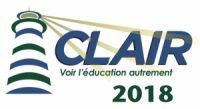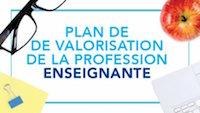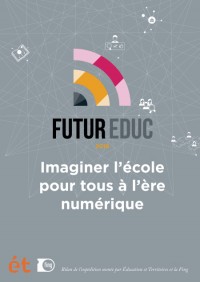
Cliquez pour l’original et les crédits
Un samedi tout ce qu’il y a de plus ordinaire se profilait devant moi en cette première journée de congé depuis douze jours. Cette semaine, j’avais reçu une invitation à rester à Montréal pour assister à la conférence TEDxNYED puisqu’un professeur organisait un visionnement à distance. Hier, j’informais le prof que je ne pouvais rester à Montréal. Mais ce matin, telle fut ma surprise de constater que l’événement disposait d’un «live feed». Couplée avec le hashtag #TEDxNYED, je dois avouer que l’expérience du visionnement à distance s’est avéré un pur délice!
Ce matin, Lawrence Lessig et Mike Wesch ont particulièrement retenu mon attention. Cet après-midi, les Jeff Jarvis, George Siemens et Chris Lehmann m’ont littéralement survolté. Animée de brillante façon par Juliette LaMontagne et ma «Twittosphère», ma journée en leur compagnie m’a transporté dans un état d’euphorie peu commune après cette semaine où on ne peu pas dire que les nouvelles soient très bonnes en éducation. Voici quelques extraits entendus ici et là qui témoignent de la profondeur des propos:
- @mwesch says «it’s time our students move from knowledgeable to knowledge-able. Lifelong learners.»
- @henryjenkins says students not «feral children of the internet to be raised by the wolves of web 2.0»
- Pourquoi refuser l’idée toute simple qu’il est mieux d’engager davantage un étudiant dans ses apprentissages que de le gaver? (après avoir entendu Henry Jenkins)
- If we think participatory culture can work to mobilize citizens, then why shouldn’t it be in the classroom? (c’était de @tscheeler)
- «If there is no sharing there is no education.» (David Wiley)
- «Les meilleurs profs sont ceux qui partagent « intensément » avec le plus d’étudiants possible.» (David Wiley)
- @lessig nous invite à se joindre à lui pour enseigner les valeurs d’un écosystème du partage.
- L’enjeu du travail collaboratif en éducation: anticiper ce qui peut motiver un prof à participer! (paraphrasant Andy Carvin et Jay Rosen.
- «Fait ce que tu sais faire de mieux et hyperlie vers le reste…» (Jay Rosen)
- Education is a process not a product. Time to change the focus. (Jay Rosen)
- «Never let your schooling interfere with your education.» (Citation de Mark Twain rapportée par Neeru Khosla)
- «Tests shouldn’t be about showing what they know; they should be about showing what they don’t know.» (Jeff Jarvis)
- «Stop this culture of standardized testing and standardized teaching… F*** the SATs» (Jeff Jarvis)
- «Les écoles sont des incubateurs et non pas des manufactures!» (Jeff Jarvis)
- «Educators, like journalists, need to be curators more than creators.» (Jeff Jarvis)
- «Education is’nt about building better googlers. Education is’nt about corporate citizens or employees for organization.» (George Siemens)
- «The problem of education does not concern me as much as the solution to the problem of education.» (George Siemens)
- «We drop so many problems on the educational process, it’s amazing it works as well as it does.» (George Siemens)
- «Lorsque nous modélisons ouvertement et de façon transparente notre façon d’apprendre, nous devenons enseignants.» (George Siemens)
- «Wikipedia can never work in theory, it only works in practice.» (@sedaii)
- «I’m a math teacher: I sell product to a market that doesn’t want it, but I’m forced by law to give it to them.» (Dan Meyer) Ce qui a fait dire à @Felixggenest que Pennac avait déjà écrit sur le sujet…
- «What problem did you solve in real life where you knew all the variables in advance, like you do in a word problem?» (Dan Meyer)
- «Children should never be the implied object of their own education; we teach kids not subjects» (Chris Lehmann)
- «People who say we don’t need teachers anymore are the most wrong out there. Kids need caring adults and mentors.» (Chris Lehmann)
- «We should not block facebook but join kids where they are and teach responsibilty.» (Chris Lehmann)
- «Kids need adults. Need us to help make sense of the world. Digital learning huge part of this.» (Chris Lehmann)
- «Instead of saying high school is preparation for real life what if we said highschool IS real life.» (Chris Lehmann)
- «How can anyone think you can transform a child if you are unwilling to transform yourself?» (Chris Lehmann)
- «Anything you teach is not as important as helping kids learn to think for themselves.» (Chris Lehmann)
- «Technology should be like oxygen: Ubiquitous, Necessary, Invisible.» (Chris Lehmann)
Un feu roulant qui vous redonne le goût du lundi matin…
Mise à jour du lendemain: Will Richardson blogue à son tour en suivi de l’événement auquel il a assisté… «TedxNYED: Amazing…So What?».
Mise à jour du 8 mars: Toute la journée les gens ont continué de réagir sur Twitter suite à l’événement… Il y a eu ce billet parmi les plus critiques, ce qui est quand même intéressant. Aussi, un extrait de ce billet a été gazouillé souvent en soirée, avec raison: «TEDxNYED was not silver bullet for the future of education. Rather, it was intended to be a starting point». Un autre billet a capté l’attention de plusieurs internautes, «14 Things I Learned from #TEDxNYED 2010». Enfin, j’ai ajouté ma touche personnelle à celle d’un intervenant sur Twitter:«The aim of education should not be a diploma but a portfolio. >Why not?…»!
Tags: "Administration scolaire" "Pédagogie et nouvelles technologies" "Some posts with English content" LesExplorateursduWeb Partageons le savoir




« Instead of saying high school is preparation for real life what if we said highschool IS real life »
C’est du John Dewey ça… »l’école n’est pas la préparation à la vie mais c’est la vie elle-même »
Je commente un peu tard mais je voulais dire que je trouve chacune de ces phrases extrêmement inspirante! Wow! Merci infiniment Mario de les avoir répertorié sur ton blogue!